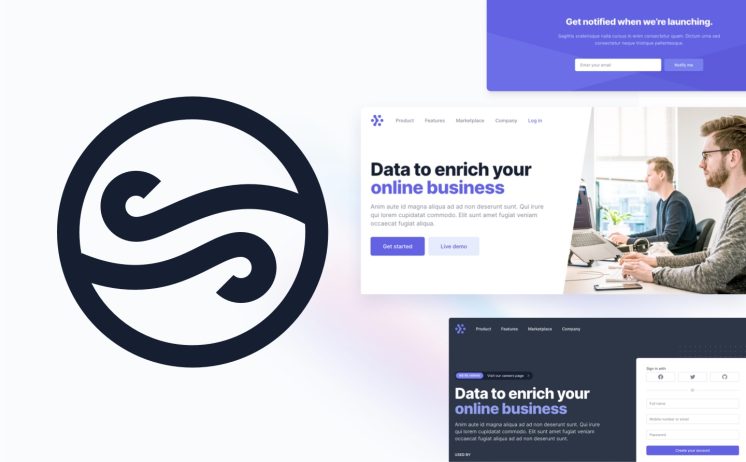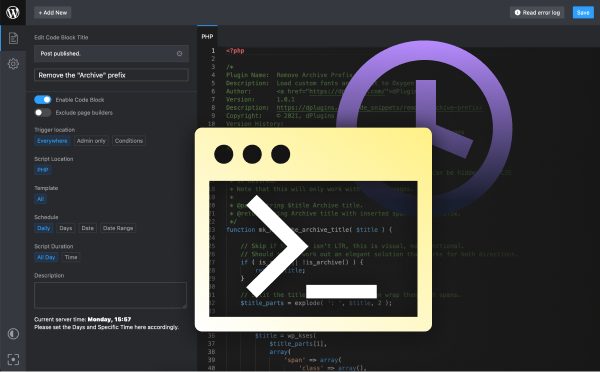Search engine optimization (SEO) is becoming increasingly important as more businesses move online. SEO is the process of improving your website’s visibility and ranking in search engine results pages (SERPs). It involves optimizing your website’s content, structure, and other elements to make it easier for search engines to understand, index, and rank it. By improving your SEO rankings, you can increase the amount of organic traffic that visits your website, and ultimately increase your sales. In this guide, we’ll discuss some tips and tricks on how to improve your SEO rankings.
How to Research Keywords to Improve SEO Rankings.
Are you ready to take your SEO rankings to the next level? Researching keywords is a pivotal step in improving your SEO rankings. With the right keywords, you can tap into the power of search engine optimization to drive more traffic and visibility to your website.
So how do you go about researching keywords? Here are some tips to help you get started:
1. Start with Your Niche: Identify the topics and themes that are related to your business or website. This will help you come up with relevant keywords that will be more effective for your SEO.
2. Analyze Your Competition: Take some time to research your competition. Look at the keywords they’re using and analyze how effective they are. This will give you an idea of what keywords are already competitive in your space.
3. Utilize Keyword Research Tools: There are a variety of free and paid keyword research tools you can use to help you find the right keywords. Use these tools to get a better understanding of the search volume, competition level, and other factors related to the keywords you’re considering.
4. Focus on Long-Tail Keywords: Long-tail keywords are often more specific and have less competition. This makes them a great choice for improving your SEO rankings.
5. Monitor Trends: Keep an eye on what’s trending in your industry. This will help you stay ahead of the curve and come up with keyword ideas that are relevant to the current market.
By following these tips, you’ll be able to research keywords more efficiently and effectively. With the right keywords, you can take your SEO rankings to the next level. So what are you waiting for? Go ahead and get started on researching keywords today!
How to Optimize Your Website Content for SEO.
Creating content for your website is an exciting process. You have the opportunity to engage with your audience, build relationships, and express your brand’s unique voice. But before you can begin to reap the rewards of your hard work, you need to ensure that your content is properly optimized for search engine optimization (SEO).
SEO is a key part of your website’s success. It helps your content be found by potential customers, drives more traffic to your site, and increases your chances of turning leads into conversions.
If you’re ready to get started, here are a few tips to help you optimize your website content for SEO.
1. Research Keywords
The first step in optimizing your website content for SEO is to research keywords your audience is using to find your content. Identify the keywords that best describe your content, and use them strategically throughout your website.
2. Write Quality Content
Once you’ve identified the keywords you want to target, it’s time to create content that’s both relevant and engaging. Take the time to craft quality content that speaks to your audience and answers their questions.
3. Use Headings and Subheadings
Using headings and subheadings throughout your content helps break up large chunks of text, making it easier for readers to digest. This also gives search engines an idea of what your content is about, and helps them index your pages for relevant keywords.
4. Link to Other Pages
Linking to other pages on your website helps search engines understand the structure of your website, and can also lead to increased pageviews. Use internal links to direct readers to related topics, and make sure to use the right anchor text.
5. Optimize Images
Images can enhance the look and feel of your website, but they can also help boost your SEO. Make sure to include keywords in image titles and alt tags, and use smaller file sizes to reduce load times.
By following these tips, you can optimize your website content for SEO and start generating more leads and conversions. With a little time and effort, you can create content that’s not only engaging, but also search engine friendly.
How to Use Internal Linking to Boost SEO Rankings.
When it comes to SEO, internal linking can be a powerful tool for boosting your rankings. Internal linking is the practice of linking from one page on your website to another page on the same website. It helps search engine crawlers understand the structure of your website, as well as helping to provide a better overall user experience.
When done correctly, internal linking can have a positive effect on your search engine rankings. Here are a few tips for making the most of internal linking to boost your SEO:
1. Create a Hierarchy of Links: The first step to effective internal linking is creating a hierarchy of links that direct visitors from one page on your website to another. This should be done in a logical way, so visitors can easily navigate your website and find what they’re looking for.
2. Utilize Anchor Text: Make sure to use descriptive anchor text when linking to other pages on your website. This will help search engines understand the context of the link, and can help your website rank for certain keywords.
3. Interlink Pages: When it comes to internal linking, it’s important to link from one page to another whenever it’s relevant. This helps create a more cohesive website structure and can help boost your rankings.
4. Focus on Quality: Quality over quantity is key when it comes to internal linking. Focus on creating valuable links that provide a benefit to both visitors and search engines.
By following these tips, you can make the most of internal linking and boost your SEO rankings. With a little bit of effort, you can create a website structure that is both user-friendly and SEO-friendly. So don’t forget the power of internal linking when it comes to improving your SEO rankings!
How to Use External Link Building Strategies to Improve SEO Rankings.
External link building is one of the most powerful strategies you can use to improve your SEO rankings. By leveraging the power of external links, you can boost your website’s visibility and drive more traffic to your pages.
Here are five tips to help you get the most out of your external link building efforts:
1. Reach Out to Quality Sources: When building external links, it is important to focus on quality over quantity. Reach out to relevant and authoritative sources and request that they link to your content.
2. Leverage Social Media: Social media is an invaluable tool for building external links. Share your content on social media platforms and encourage your followers to share it with their networks.
3. Participate in Relevant Communities: Join online communities related to your industry and take part in the conversations. This will help you build relationships with potential link partners.
4. Create Linkable Assets: Create content that other websites will want to link to. Aim to create content that is unique, valuable, and relevant to your niche.
5. Monitor Your Links: Keep track of your links. Make sure they are still active and that they are pointing to the right pages.
By using these external link building strategies, you can significantly improve your SEO rankings and drive more traffic to your website. So, start building those external links today!
How to Use Social Media to Increase SEO Rankings.
Social media is a powerful tool to help increase your SEO rankings. By leveraging your presence on social media, you can increase your visibility and reach more people online. Here are some tips on how to use social media to help boost your SEO rankings:
1. Create content that resonates with your audience. Content is key when it comes to SEO rankings, so be sure to create content that is relevant to what your target audience is looking for. If you want to increase your SEO rankings, create content that provides value to your readers.
2. Use keyword-rich titles and meta descriptions. When creating content for social media, be sure to include keywords in your titles and meta descriptions. This will help search engines understand what your content is about and can help boost your SEO rankings.
3. Share your content. Once you have created content, be sure to share it on your social media profiles. The more people that view your content, the more likely it is to be picked up by search engines and improve your SEO rankings.
4. Build relationships with influencers. By engaging with influencers in your industry, you can increase your visibility and reach more people. Influencers can help boost your SEO rankings by sharing your content, linking to your website, and mentioning you in their social media posts.
5. Leverage user-generated content. User-generated content (UGC) can be a great way to boost your SEO rankings. Encourage your followers to share their own content that is related to your brand and use relevant hashtags to make it easier for search engines to find.
By following these tips, you can use social media to increase your SEO rankings. So, get creative and start leveraging your social media presence to get ahead of the competition.
How to Monitor and Measure SEO Performance.
Monitoring and measuring SEO performance is a key part of any successful digital marketing strategy. Failing to do so can leave you in the dark as to how your campaigns are performing and cost you valuable time and money.
Fortunately, there are a variety of tools and methods available to help you keep track of your SEO performance, so you can make informed decisions about how to optimize your strategy. Here’s how to monitor and measure your SEO performance:
1. Track Keywords: Use a keyword tracking tool like Google Trends to track how your target keywords are performing. This will help you identify which keywords are bringing in the most organic traffic, so you can focus your content and SEO efforts on these.
2. Monitor Your Rankings: Use a ranking tracker to monitor your rankings for target keywords. This will help you identify which keywords are performing the best, and what changes you need to make to your content and SEO strategy to improve your rankings.
3. Monitor Competitor Performance: Use a competitor tracking tool to monitor the performance of your competitors. This will give you valuable insights into their SEO tactics and help you identify areas where you can outrank them.
4. Analyze Backlinks: Use a backlink analysis tool to monitor the quality and quantity of backlinks you have. This will help you identify any spammy or low-quality links that could be negatively impacting your rankings.
5. Track Traffic: Use a web analytics tool to track your website traffic. This will help you identify which pages are performing the best, and which keywords are driving the most organic traffic.
By monitoring and measuring your SEO performance, you can make sure your strategy is on track and ensure you’re getting the most out of your efforts. It can be a daunting task, but with the right tools and methods, you can make sure you’re optimizing your SEO performance and staying one step ahead of the competition.
Long-Term Strategies for Improving SEO Rankings.
1. Focus on Quality Content: Quality content should be your top priority as it’s a key factor for improving SEO rankings. Make sure your content is well-written, relevant, informative, and engaging for your audience.
2. Optimize for Voice Search: Voice search is becoming increasingly important and can help you rank higher in search engines. Ensure that you’re including keywords and phrases that are likely to be used in voice searches to get the best results.
3. Use Backlinks: Backlinks are essential for improving your SEO rankings. Make sure you’re connecting your content to other relevant websites and resources to help build up your backlink profile.
4. Leverage Social Media: Social media is a great way to increase your visibility and reach. Make sure you’re actively engaging with your target audience and sharing your content on social media to help drive more traffic and improve your SEO rankings.
5. Improve Your Page Speed: Page speed is an important factor for improving SEO rankings. Use tools to help you analyze and optimize your page speed to help ensure users have a good experience on your site.
6. Utilize Keywords: Keywords are an important factor for SEO. Research and use keywords that are relevant to your business, industry, and target audience to help improve your SEO rankings.
7. Monitor Your SEO: Monitor your SEO and track your progress over time to ensure you’re taking the necessary steps to improve your rankings. This will help you stay on top of the latest trends in SEO and make sure you’re taking the right steps to improve your SEO rankings.
By implementing the above steps, you can improve your SEO rankings and gain more visibility in search engine results. It is important to remember that SEO is an ongoing process and requires consistent effort to maintain high rankings. As the search engine algorithms continue to evolve, be sure to stay up-to-date on the latest SEO tactics and best practices in order to remain competitive. Additionally, it is important to focus on creating quality content that is valuable to your target audience and that uses the right keywords. With these strategies in place, you can create an effective SEO plan and start seeing the results you desire.


